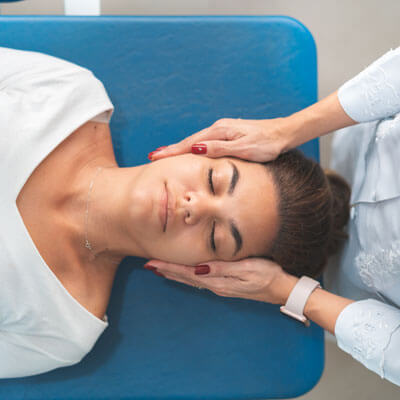Improve Your Sleep With Barham Chiropractic
 A good night’s sleep is essential for overall health and well-being, but for many people, it can be frustratingly elusive. At Barham Chiropractic, we understand the importance of quality sleep and offer solutions to help you get the rest you need.
A good night’s sleep is essential for overall health and well-being, but for many people, it can be frustratingly elusive. At Barham Chiropractic, we understand the importance of quality sleep and offer solutions to help you get the rest you need.
The Chiropractic Connection to Better Sleep
Chiropractic care can help improve sleep by reducing pain and promoting relaxation in the body. By addressing misalignments and tension in the spine, our chiropractors in Albany Creek, Toowoomba and Wavell Heights can help your body find balance and reduce the physical stressors that may be keeping you awake at night. When your body is properly aligned, it can function more efficiently, allowing for a more restful and rejuvenating sleep.
In addition to reducing pain, chiropractic adjustments can also help improve circulation, reduce inflammation, and promote a sense of overall well-being. These benefits can contribute to a more relaxed state of mind and body, making it easier to fall asleep and stay asleep throughout the night.
The Perfect Pillow for Your Best Sleep
In addition to chiropractic adjustments, we recommend using a contoured cervical pillow to maintain proper spinal alignment while you sleep. The right pillow can make a world of difference in your comfort and quality of sleep.
At Barham Chiropractic, we offer personalised pillow fittings to ensure you get the best pillow for your unique needs. We’ll consider your sleeping position, body type, and any specific issues you may have to recommend the perfect pillow for you. Our team will guide you through the selection process, explaining the benefits of each pillow type and helping you find the one that offers the optimal level of support and comfort.
Proper pillow selection and usage can help:
- Reduce neck and shoulder pain
- Alleviate headaches and migraines
- Improve breathing and reduce snoring
- Promote proper spinal alignment
- Enhance overall sleep quality
Our Approach to Better Sleep
We take a holistic approach to sleep improvement. In addition to chiropractic care and personalised pillow fittings, we may also provide guidance on other lifestyle factors that can impact your sleep, such as:
- Creating a relaxing bedtime routine
- Optimising your sleep environment
- Managing stress through techniques like meditation or deep breathing
- Incorporating regular exercise into your daily routine
- Making healthy dietary choices
Our team is dedicated to helping you achieve the best possible sleep, so you can wake up feeling refreshed, energised, and ready to take on the day.
Start Sleeping Better Tonight
Don’t spend another night tossing and turning. Contact us today to schedule a sleep consultation and pillow fitting.

